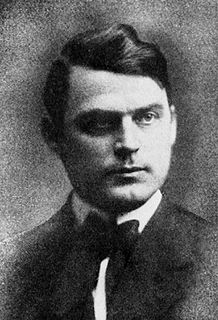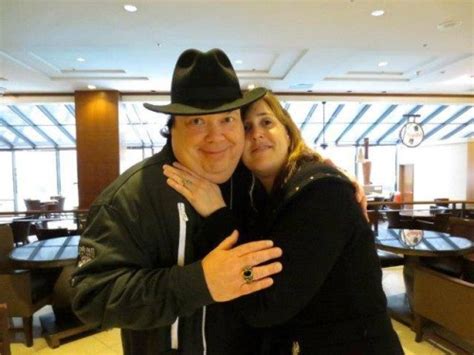A Quote by Carl Jung
I readily admit that I have such a great respect for what happens in the human soul that I would be afraid of disturbing and distorting the silent operation of nature by clumsy interference.
Related Quotes
One of the most difficult problems of our age is that leaders, and perhaps academics as well, cannot readily admit that things are out of control and that we do not know what to do. We have too much information, limited cognitive abilities to think in systemic terms and an unwillingness to appear to be in control and to have solutions for our problems. We are afraid that if we admit to our confusion, we will make our followers and students anxious and disillusioned. We know we must learn how to learn, but we are afraid to admit it.
The study of letters is the study of the operation of human force, of human freedom and activity; the study of nature is the study of the operation of non-human forces, of human limitation and passivity. The contemplation of human force and activity tends naturally to heighten our own force and activity; the contemplation of human limits and passivity tends rather to check it. Therefore the men who have had the humanistic training have played, and yet play, so prominent a part in human affairs, in spite of their prodigious ignorance of the universe.
I think, questions about what it means to respect nature become very important because just as in human society, for example, part of what it is for me to live a good life as a human being in a human society is to have respect for others around me. Now, that respect, to some extent, can be thought of as being grounded in the rights and interest of others but it also has to do with the stance that I take in the world and what it is that provides meaning and significance in my own life and I think there are similar ideas of respect for nature that apply as well.
Should I not be proud, when for twenty years I have had to admit to myself that the great Newton and all the mathematicians and noble calculators along with him were involved in a decisive error with respect to the doctrine of color, and that I among millions was the only one who knew what was right in this great subject of nature?
Mind is the great lever of all things; human thought is the process by which human ends are ultimately answered; and the diffusion of knowledge, so astonishing in the last half-century, has rendered innumerable minds, variously gifted by nature, competent to be competitors or fellow-workers on the theatre of intellectual operation.
At this day . . . the earth sustains on her bosom many monster minds, minds which are not afraid to employ the seed of Deity deposited in human nature as a means of suppressing the name of God. Can anything be more detestable than this madness in man, who, finding God a hundred times both in his body and his soul, makes his excellence in this respect a pretext for denying that there is a God? He will not say that chance has made him different from the brutes; . . . but, substituting Nature as the architect of the universe, he suppresses the name of God.
Theologians and philosophers, who make God the creator of Nature and the architect of the Universe, reveal Him to us as an illogical and unbalanced Being. They declare He is benevolent because they are afraid of Him, but they are forced to admit the truth that His ways are vicious and beyond understanding. They attribute a malignity to Him seldom to be found in any human being. And that is how they get human beings to worship Him. For our miserable species would never lavish worship on a just and benevolent God from whom they had nothing to fear.





































